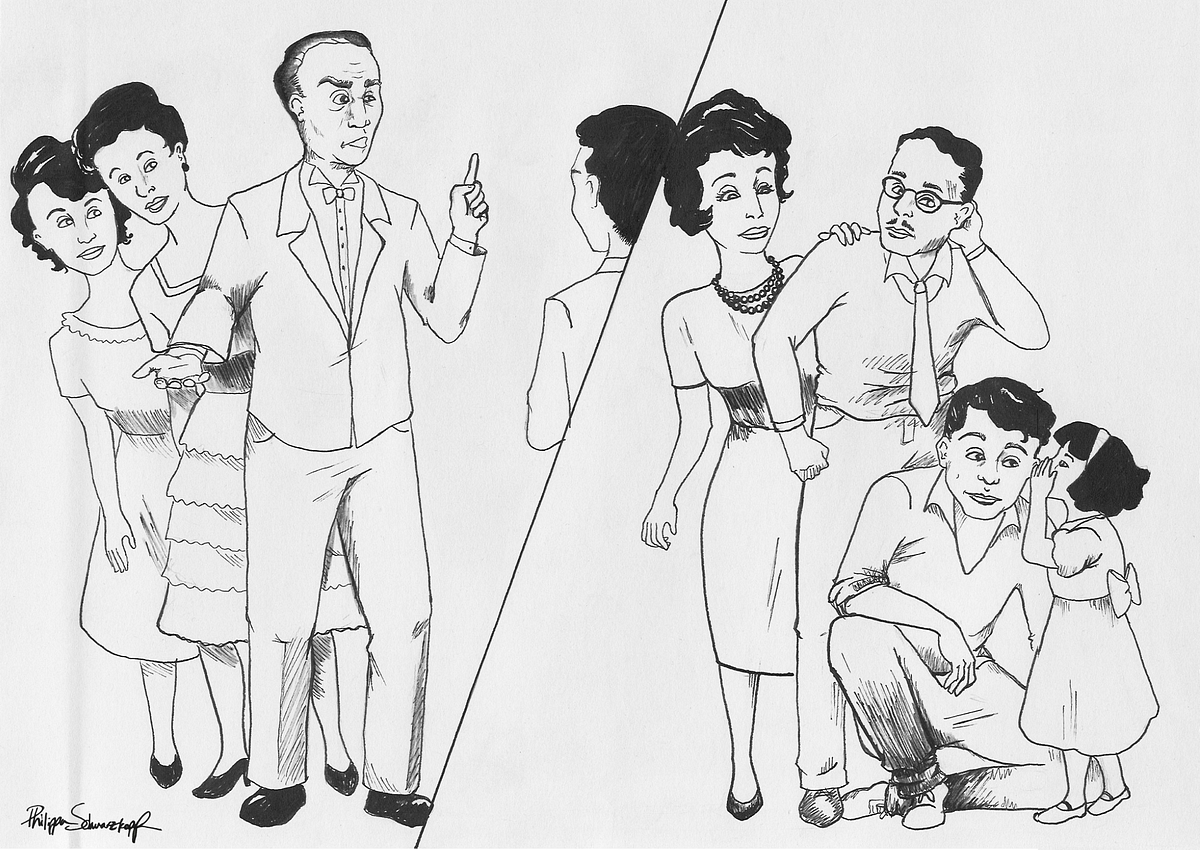
Active during the 1950–60s, Fateen Abdel-Wahab was the principle and most productive director of comedy film in classical Egyptian cinema. While the popular — and lucrative — formula for a comedy was that it depended more on an actor’s ability to physically incarnate comedic movements, Abdel-Wahab developed comedy through situations. Yet, the traditional comedy film — the one most satisfactory of commercial gain — was favored by most film producers. The incongruity between economic success and innovation led Abdel-Wahab’s career to alternate between commercial films and films that testified to a more unique creative vision.
With actor Ismail Yassin as leading character, Abdel-Wahab made 27 films in which the comedy mainly depended on Yassin reacting and talking in a manner that articulates his distinctly large mouth. In such films, Yassin played a character that was mainly written to be played by him, to fit his performance. As expected, these films achieved great financial success. But this is not the only type of film he directed. Abdel-Wahab consciously chose to do other films in which he had more agency to let his vision come through: without commercial gain or a certain formula being pivotal to the production of his films.
Abdel-Wahab challenged himself by working with actors who were not known for playing comedy roles. One of the actors Abdel-Wahab casted in an unconventional role is Youssef Wahbi. Originally a theatre actor, Wahbi was known for his serious tone of voice and heavy theatrical presence. He played the main character in
Rumor of Love
(1961), in which he had a sarcastic laugh and attitude, which became iconic in Egyptian cinema. As director, Abdel-Wahab was to make Wahbi’s performance fit the context of the film. Wahbi plays an elderly man who speaks in a slow rhythm and a poised tone, a quality he acquired from classical theatre, to show his character’s wise air. In the film, Wahbi’s character guides his nephew, a handsome and socially clumsy young man played by Omar Sharif, in how to approach his love interest. The comedy develops from the collision between Wahbi’s grounded character and his nephew’s naivete. Abdel-Wahab had a way of casting actors who would produce a certain chemistry that would integrate with the film’s story.
In
Zizi’s Family
(1963), Abdel-Wahab reflects on the national goal of building a better country in the wake of the Revolution of 1952 — which converted Egypt from a kingdom to a republic on grounds of political corruption. Zizi is a five-year-old girl who acts as a communicator among her family members. Her older siblings, a young woman and two young men, are distracted from spending time together or with their mother, their only living parent, by their individual goals. Zizi, whose wit and small size facilitate her circulation and act as a comedy element, helps bring the perspectives of her siblings and her mother closer. The film echoes the national spirit of social collectivity which inevitably starts with the family as the basic unit of society.
The film demonstrates the national values of that period of Egyptian history while demonstrating the consciousness of this endeavor. Actor Ahmed Ramzi plays a self-indulgent young man whose love interest condemns his negligent ways and encourages him to pursue his life seriously. Ramzi was known for playing this character in many previous films, but, unlike his previous roles, his character undergoes a change from the self-indulgent, individualized person to one whose goals align with those around him. He becomes useful to a society that wants to channel collective national efforts for a better future. The transformation in one of Egyptian cinema’s most iconic characters echoes the national sentiment that the political corruption of the past would not influence the future.
Although his commercial films gave the impression that cinema is a less serious industry, Abdel-Wahab made a film that captures the serious mentality of the nation in the 1950s-1960s in a comedic tone. The film is one of few in classical Egyptian cinema to have thoroughly reflected the socio-political circumstances of the time they took place. He demonstrates that film can be used to advocate for certain political ideas that resonate with an audience and thus, should be viewed carefully.
Abdel-Wahab could not have consistently made less traditional comedy films because of the economic difficulty involved in producing films that deviates from producers’ standards of a commercially successful film. But even the films that are stronger for their commercial appeal than artistic importance had a role in his stylistic development. Comedy that stems from the chemistry between actors has come to define Abdel-Wahab’s directing style. The understanding of what makes each character unique, which was reinforced through the comedy he applied in his films with Yassin, culminates into a defining quality in the films he had more agency in crafting.

























